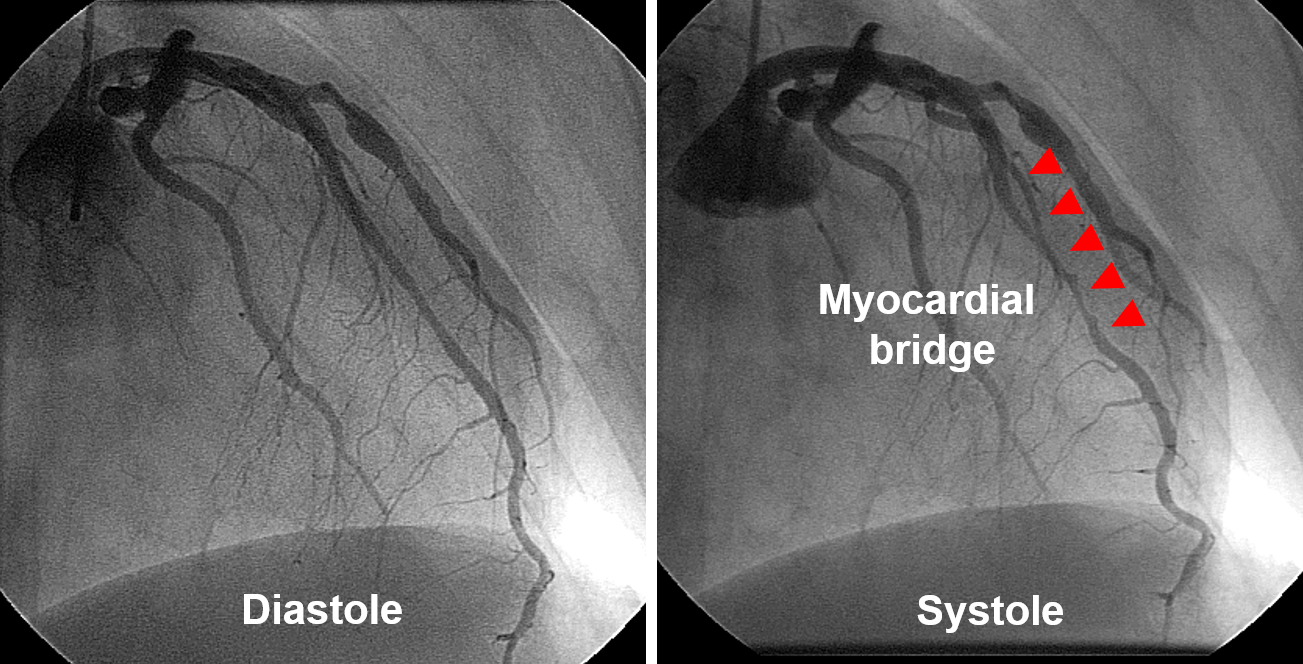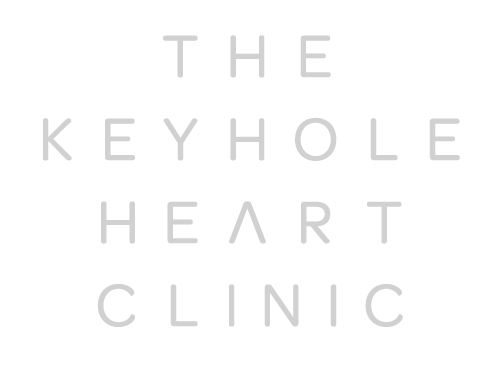Myocardial Bridge: A Hidden Cause of Heart Symptoms You Should Know

What is a Myocardial Bridge?
A myocardial bridge occurs when a band of heart muscle grows over a coronary artery instead of under it [1] [2]. Normally, coronary arteries sit on the surface of the heart, supplying oxygen-rich blood to the heart muscle. But in some people, a section of an artery dips into the heart muscle and then resurfaces [1]. This creates a “bridge” of muscle over the artery.
How Common are Myocardial Bridges?
Myocardial bridges are more common than you might think. Studies show that they occur in about 19% of the population, although autopsy findings suggest it could be as high as 42% [3]. Most commonly, it affects the left anterior descending artery, which supplies blood to a large portion of the heart [4].
Symptoms of Myocardial Bridging
While many people with myocardial bridges never experience symptoms, others may face significant challenges. Common symptoms include:
– Chest pain or angina
– Shortness of breath
– Fatigue
– Dizziness
– Palpitations or irregular heartbeats
– Squeezing or tightness in the chest [3]
These symptoms often worsen during physical activity or emotional stress [1].
Why Do Myocardial Bridges Cause Symptoms?
When your heart beats, the bridged muscle squeezes the artery beneath it. This compression can reduce blood flow to part of your heart muscle, especially during exercise or stress when your heart is beating faster [1][4]. It’s like stepping on a garden hose – the water flow decreases while you’re pressing on it.
Diagnosing Myocardial Bridges
Diagnosing a myocardial bridge can be challenging because symptoms often mimic other heart conditions. We use several tests to identify and assess myocardial bridges:
1. Coronary angiography: This invasive test allows us to visualise the coronary arteries and see the characteristic “milking effect” of a myocardial bridge [ 4].
2. Computed Tomography (CT) angiography: This non-invasive test can show the course of the coronary arteries through the heart muscle [4].
3. Intravascular ultrasound (IVUS): This test helps us assess the severity of artery compression [4].
4. Exercise stress tests: These help us see how your heart performs during physical activity [1].
Treatment Options for Myocardial Bridges
The good news is that most people with myocardial bridges don’t need treatment. However, if you’re experiencing symptoms, we have several options:
1. Medications: Beta-blockers and calcium channel blockers can help reduce heart rate and decrease the squeezing effect on the bridged artery [ 1][4].
2. Lifestyle changes: Reducing stress and modifying exercise routines can help manage symptoms.
3. Angioplasty: In some cases, we may recommend placing a stent to keep the artery open [4].
4. Surgery: In rare, severe cases, we may perform a procedure called “unroofing,” where we surgically remove the bridge of muscle over the artery [1][4]. In certain circumstances, this procedure can be performed minimally invasively.
Prognosis and Risk of Complications
While myocardial bridges were once considered harmless, we now know they can lead to serious complications in some cases. These may include:
– Acute coronary syndromes
– Coronary spasm
– Arrhythmias
– Sudden cardiac death [2]
An important Hungarian study showed that patients who had both a myocardial bridge and significant coronary artery disease in the left anterior descending artery (LAD) faced higher risks. These patients were generally older and more likely to have diabetes. Over 10 years, they had a higher mortality rate compared to those with just a myocardial bridge.
This doesn’t mean you should panic if you have both conditions, but it does highlight the importance of proper management and regular check-ups. Your heart specialist will work with you to create a tailored treatment plan that addresses both the myocardial bridge and any coronary artery disease, helping to improve your long-term outlook. Most people with myocardial bridges have an excellent prognosis, especially with proper management[4].
When Should You Seek Medical Attention?
If you experience chest pain, shortness of breath, or other heart-related symptoms, especially during exercise, it’s crucial to seek medical attention. While these symptoms don’t necessarily mean you have a myocardial bridge, they warrant a thorough evaluation.
Living with a Myocardial Bridge
If you’ve been diagnosed with a myocardial bridge, remember that knowledge is power. Understanding your condition can help you manage it effectively:
1. Take your medications as prescribed.
2. Attend regular check-ups with your cardiologist.
3. Stay active, but be aware of your limits and any symptoms during exercise.
4. Manage stress through relaxation techniques or counselling if needed.
5. Maintain a heart-healthy lifestyle with a balanced diet and regular exercise.
Remember, a myocardial bridge is a part of your heart’s unique anatomy. With proper care and management, most people with this condition lead full, active lives. If you have concerns about your heart health, don’t hesitate to speak with your healthcare provider. Your heart deserves the best care possible.
References:
[1] https://www.texasheart.org/heart-health/heart-information-center/topics/myocardial-bridge/
[2] https://pmc.ncbi.nlm.nih.gov/articles/PMC2733018/
[3] https://en.wikipedia.org/wiki/Myocardial_bridge
[4] https://pmc.ncbi.nlm.nih.gov/articles/PMC9653150/
[5] https://stanfordhealthcare.org/medical-conditions/blood-heart-circulation/myocardial-bridging/symptoms.html
[6] https://www.ecrjournal.com/articles/bridging-gap-rare-cause-angina
[7] https://stanfordhealthcare.org/medical-conditions/blood-heart-circulation/myocardial-bridging.html
[8] https://my.clevelandclinic.org/health/diseases/myocardial-bridge
[9] https://www.acc.org/Latest-in-Cardiology/Articles/2020/08/04/08/48/Myocardial-Bridging-in-Adults
[10] https://www.mdpi.com/2308-3425/9/5/129
Image reference: https://www.ahajournals.org/doi/10.1161/JAHA.120.017455

